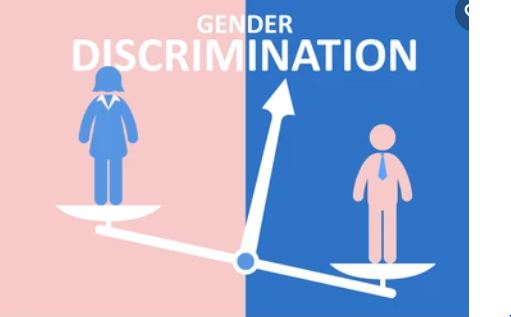
Uma Kant Joshi
Octuber 28 , Kanchanpur
All over the world, the women are historically left behind to receive the opportunities. The gender discrimination is the one cause not to get such opportunities. Even though, discrimination can be different on the basis of religion, society and culture. In case of Far West province, there are so many deep rooted social and cultural dogmas that have created gender discrimination.
Unnati Chaudhary editor in chief of Kerninews online says, "When I was sixteen; my family pressured me to get marry. I refused and fled from home and started career in journalism. I became contactless with family nearly four years. During that time I was paid just to join hand and mouth. I did not have any salary. I used to lodge in newspaper office."
Mrs Chaudhary, active member of Federation of Nepalese Journalist Sudurpaschim province, adds, "There are nearly 3 hundreds 50 female journalists in the record of FNJ Sudurpaschim province. Hardly 50 female journalists work in different media but among of them no more than 12 female journalists go for field reporting. Most of media houses still thought female journalists are as inefficient workers in workplace. If they attempt job, then they are discriminated in their payments as well as harassments also occur in workplace. Sometimes it seems that our society is made for the gender discrimination".
Article 38 of the constitution of Republic Nepal guaranteed, every woman shall have equal lineage right without gender-based discrimination. Implementation of status is really despondent. Bandana Bam, reporter of Annapurna Post from Dadheldhura says, "I did not get leave during my delivery period that's why I had resigned from the reporter, this is due to the result of gender discrimination."
Similarly, the Nepalese government policy says that the government will remove discriminatory barriers to the socio-economic development of women, children and adolescent girls; end gender-based violence; adopt gender-responsive governance system; and achieve economic empowerment of women. Station manager of Hamro Safalata from Achham, Shirjana Snehi from Bajhang Seti FM have communal experience of gender discrimination. They say that almost female journalists from rural areas are only trained journalists; they don’t have access of media education. Most of female journalists are sexually harassed in office and during the field reporting. In term of wage also they are discriminated they are low paid.
In terms of defense, when discrimination occurs on them, Terai based female journalists seem more defensive than of mountain region based female journalists, Rama Bhattarai, Chadani Acharya, and Durga Upadhya share their communal experiences in this cases. In many cases when they were mistreated in working place they used to defend on the spot later on they did not get such maltreat.
New comer has different experience in terms of gender discriminations. Bindu Chand, reporter of Dinesh FM Dhangadi doesn't believe on gender discrimination. She says," If any female journalist is capable to work self and skilled writer she can do work anywhere without any discrimination."
Socially and culturally for females, working late night far from home is not taken positive in Sudurpaschim province. Therefore many of the female journalists have to revolt with family and society to engage in the media. Sometimes they have to ignore the basic cultural norms and values. "Due to strict social rules and regulation they have to face the psychological torture. That’s why in many cases they cannot spoke out even though they face the different types of violence", says Sangita Timilsena vice president of FNJ Bajura.
Most of the female journalists talk among the closest friend about discriminatory and violence behavior from the staffs. They never complain the authority due to the fare of blaming them characterless. This is the frequent experience of every female journalist. If they raise the voice against any types of discrimination and maltreatment they don’t have any types of job security. Rather than to talk with authority about the injustice they feel it's better to hide the event and keep silence in the working place.
Nepalese government has launched The Sexual Harassment at Workplace Prevention Act 2015 (2071) to end the violence against the women in workplace. "Female journalists are known about this legal provision against the injustice and remedies, but implementers of government are careless on this issue. Therefore they never talk seriously about the women safety", says Bhubi Bista of Radio Seven Star from Baitadi.
"In order to prevent the fundamental rights of women, the relevant laws must have to be implement effectively", says Shushila Dhami. She suggests enforcing the policy of zero-tolerance against gender-based violence.
Likewise, it seems the government have to adopt gender-responsive strategies while making policies, plans and laws; empower women to ensure their access to all the bodies of the state; increase the participation of women in income-generating activities; reduce business and social risk in economic activities of women; and ensure their equal representation at the decision-making levels.
Nepal is a party to the Convention on the Elimination of all Forms of Discrimination Against Women adopted in 1979 by the United Nations General Assembly. But in practice Nepal has to go strictly in the case of women safety. Khageshwora Budha of Mhendranagarpost says, "To be professional female journalists, we must have to get the free and safety environment to do work." She wishes none of the female journalists have to leave the journalism due to the discrimination.